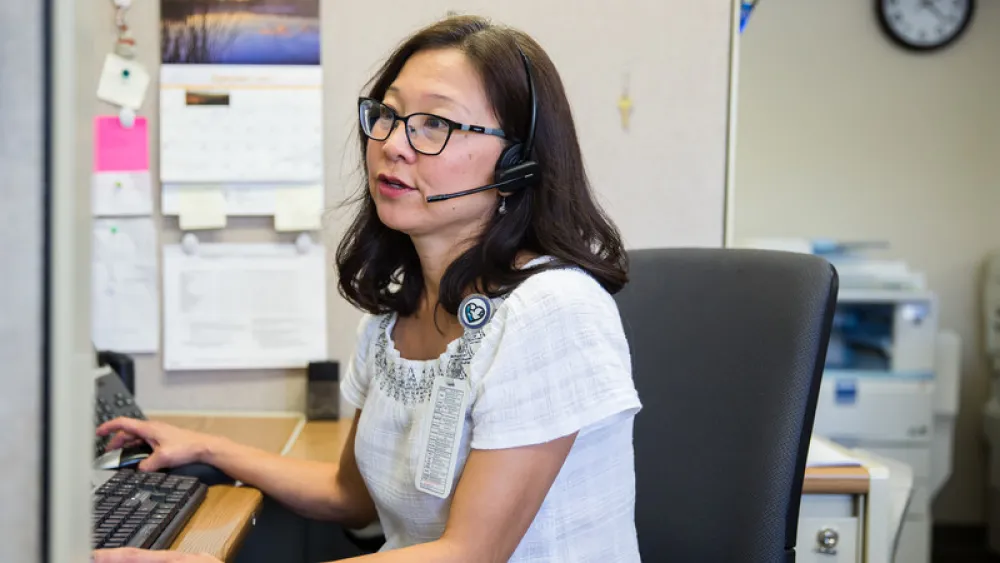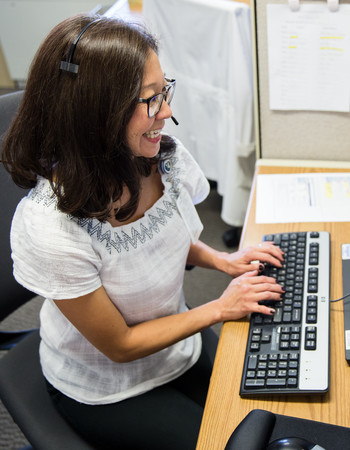Today's Medicine
When Methodist Calls: Pre-Surgery RNs Call to Deliver Answers, Education and Comfort


The Meaning of Care in a phone call
At Methodist, The Meaning of Care begins before you step foot through our doorways. When it comes to a surgical procedure, the goal is to ensure your safety and well-being.
Before you undergo a surgical procedure at a Methodist Hospital or outpatient location, you may receive a few “house calls.” In this case, that means an actual phone call to help you prepare for your procedure. The first call comes from a nurse who specializes in pre-surgery care. *
We really work on behalf of anesthesia and Methodist Hospital surgical services to ensure the patient receives the highest quality of care, excellent service, and has the safest journey through their surgical experience.
Julia Luceri
Team Leader for Methodist Pre-Surgery
Just a few questions
The pre-surgery team of experienced nurses will ask a series of questions about your medical history to prepare your surgical team for your procedure. They will want to know answers to questions such as:
- Do you have a heart problem, heart disease or high blood pressure?
- Do you have any respiratory or breathing problems?
- Have you ever had any problems with anesthesia?
- Are you taking any medications?
- Do you use tobacco, alcohol or illegal drugs?
- Do you have allergies?
- Have you had other surgeries or illnesses?
- Who will be your health partner?
“Typically our calls take anywhere from 10 to 15 minutes when we interview a patient and get all their information,” said Julia Luceri, Team Leader for Methodist Pre-Surgery. “This isn’t just a call where we go through to check off boxes. Our nurses do a lot of critical thinking. Many of our nurses have decades of experience at Methodist hospital. They have a deep understanding of many different diagnoses and know how these might impact surgery.”
Want more information about preparing for surgery?
Check out our online Surgical Services Booklet.
Ruling out risk factors
In some cases, you may need to see your primary care provider for a pre-op physical. Blood or urine tests may be needed to help rule out risk factors that may delay your surgery. Your doctor might order an x-ray or electrocardiogram (EKG or ECG) to help show how well your heart is working.
“When it comes to surgery, we really rely on everyone to work together as a team,” said Luceri. “Each of us has different backgrounds and strengths we can draw upon to help serve our patients in the best way possible.”
Extra education
 The Pre-Surgery nurses are also there to give pre-admission education, and tell you what you need to know to prepare for surgery, and answer some of the questions you may have about your procedure. Some of your education may come from an interactive computer program from EMMI Solutions which you will be assigned to help explain your surgery, review types of anesthesia, and offer safety tips to better prepare you. You may receive an automated call or email from EMMI to watch your video.
The Pre-Surgery nurses are also there to give pre-admission education, and tell you what you need to know to prepare for surgery, and answer some of the questions you may have about your procedure. Some of your education may come from an interactive computer program from EMMI Solutions which you will be assigned to help explain your surgery, review types of anesthesia, and offer safety tips to better prepare you. You may receive an automated call or email from EMMI to watch your video.
“Surgery, for patients, can be a very overwhelming time and a very anxious time,” said Luceri. “Even though we're not at the bedside, our nurses listen and deliver excellent care over the phone. We provide reassurance and also act as an advocate for the patient.”
The call you receive from a Methodist pre-surgery nurse prior to your procedure can ensure a higher level of safety, a better outcome, and a quicker recovery.
*You cannot drive while receiving a call from a pre-surgery nurse.
Read more from our 3-part series, “When Methodist Calls”:

